Federalist Papers & Anti-Federalist
Unlock all answers in this set
Unlock answersquestion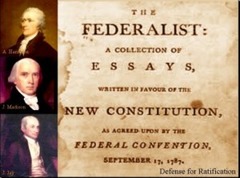
What were the federalist papers?

answer
essays published in New York newspapers over course of 2 years (1787-1788); 85 total essays
question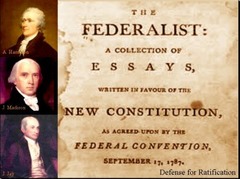
Who wrote the Federalists Papers?

answer
James Madison (29), John Jay (6) and Alexander Hamilton (51)
question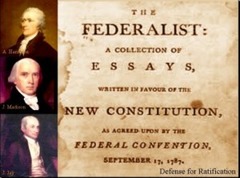
How many essays were published in the Federalist papers?

answer
85; Hamilton wrote 51, Madison wrote 29 and Jay wrote 6
question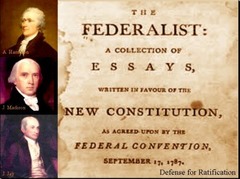
What name were the Federalist Papers papers released under?

answer
The authors used the pseudonym Publius; were released anonymously
question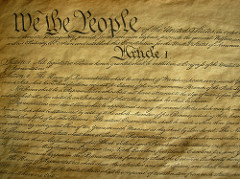
What were the Federalist essays promoting?

answer
the ratification of Constitution
question
What were critics of the Federalist Papers worried about?

answer
a national government would have too much power
question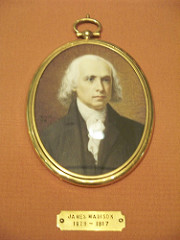
Federalist 10

answer
James Madison argued in favor of ratification of the Constitution argued factions are a natural, yet concerning, product of freedom and asserted there are two ways to control factions: remove the cause or limit the effect factions could be controlled better by a large republic where there are many competing factions also argued that elected representatives from larger groups of constituents would be more competent rather than a pure democracy
question
federalist 51

answer
James Madison 1. A large nation mitigates the effects of a faction by multiplying the number of interests 2. If republic isn't enough to prevent the formation of a faction in Congress \"auxiliary precautions\" What are the auxiliary precautions??? 1. Separation of powers, 2. legislative checks and balances, 3. executive veto paper, & 4. judicial review
question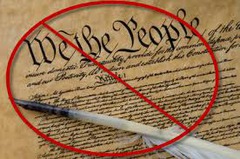
Who didn't support the ratification of the Constitution?

answer
Anti-Federalists
question
How many states needed to ratify the Constitution?

answer
9 of the 13
question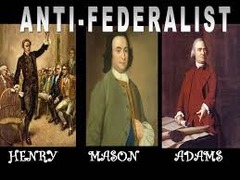
What did the Anti-Federalist, the Federal Farmer believe?

answer
The proposed Constitution will eventually become a consolidated government because: 1. it lacks safeguards 2. the small number of representatives was a fatal error 3. the remote and extreme states would be at a disadvantage
question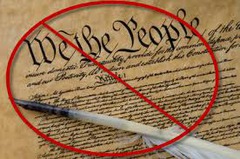
What did the Anti-Federalist, Centinel believe?

answer
Anything short of despotism could bind so great a country under one government because: 1. Representatives would not competent to attend to the various local wants 2. If have appropriate # of representatives, there would be too little time, so it can't work in a nation so large =Therefore, Constitution doesn't make sense- too much power at national level
question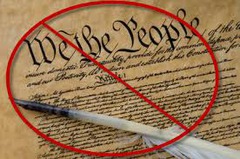
What did the Anti-Federalist, Brutus believe?

answer
You CANNOT have a free republic of such an immense extent 1. because history says so 2. Representatives cannot act interests of constituents because it's not possible due to sheer number ( 2/States & 1/30,000) & Requires trust which is established through knowing and interacting with constituents... you cannot get to know 30,000 Diversity will led to constant fighting People will always be clashing, so legislative process will be delayed
question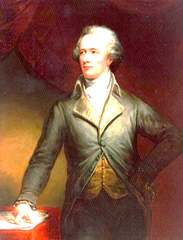
Federalist 9

answer
Alexander Hamilton agrees that in the past, all republics had failed to secure the rights of their citizens and had perished in the grip of either tyranny or anarchy... BUT Hamilton writes that the framers of the Constitution have discovered or improved upon the \"science of politics,\" and this will make possible an American republic that is both durable and safe for the rights of the people. Among these improvements are: 1. the election by the people of representatives to make all laws 2. separation of powers 3. legislative checks and balances 4. judges who hold tenure during good behavior 5. the \"enlargement of the orbit\" or the size of the territory that is to exist under the national government.



